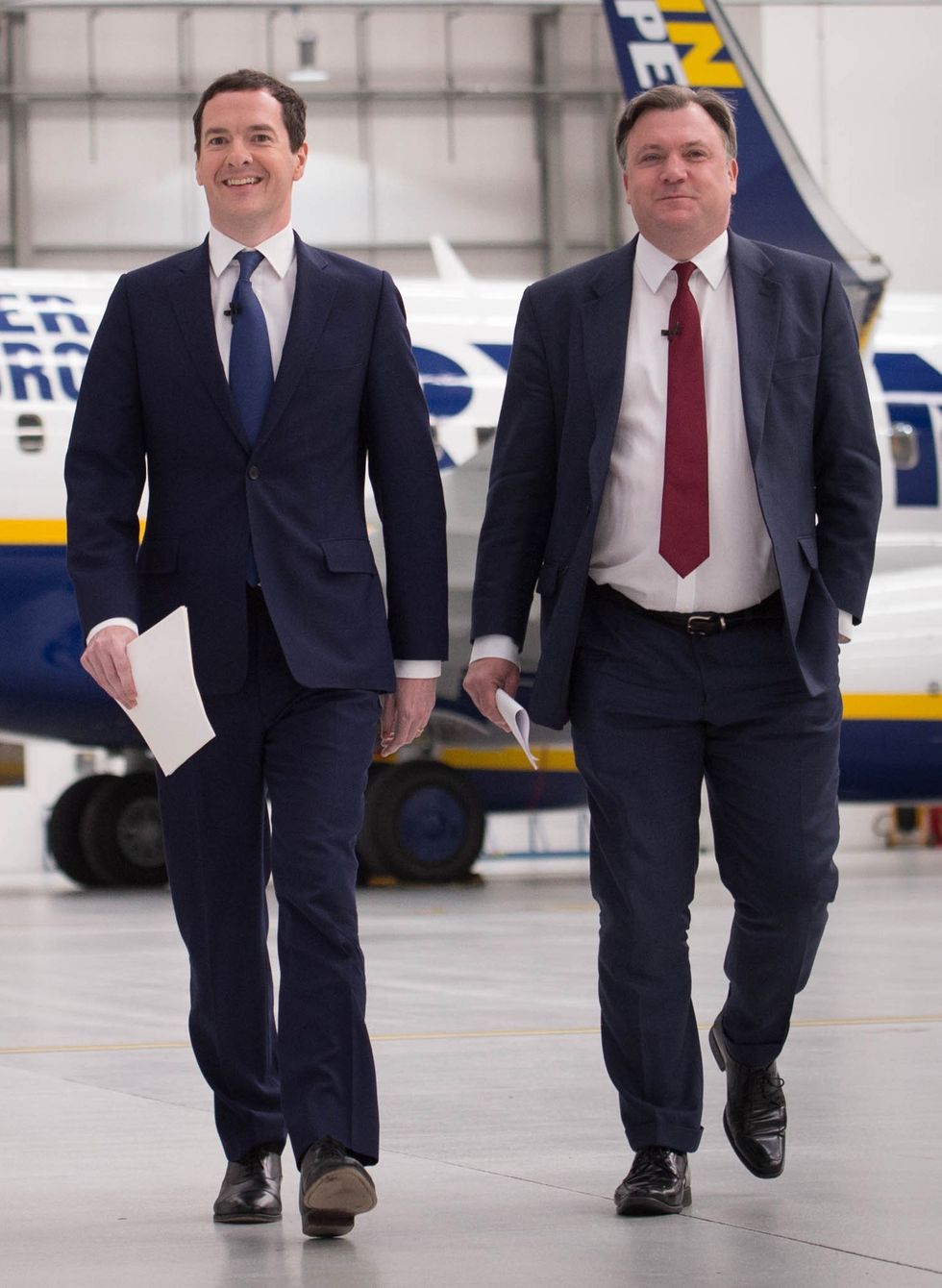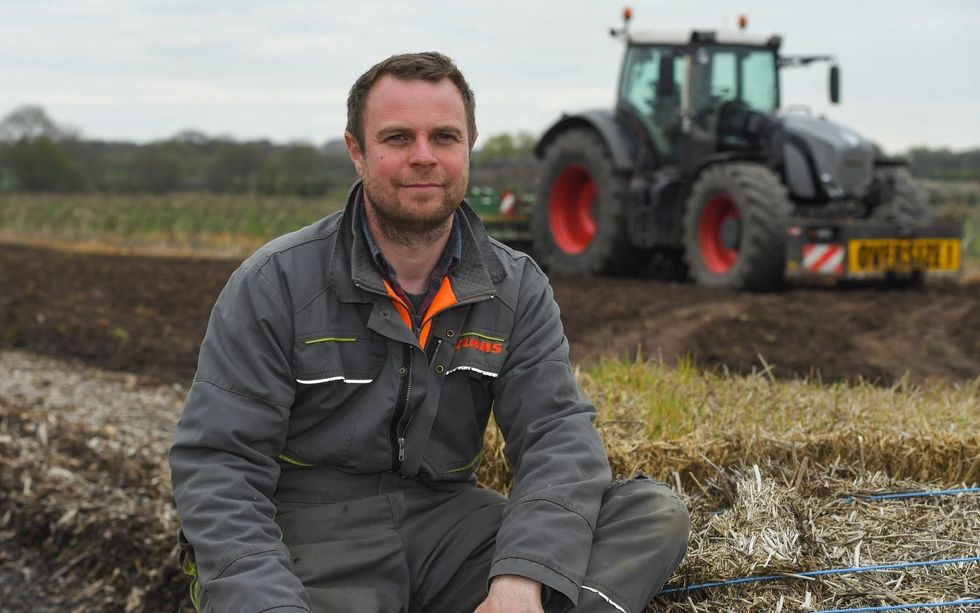Andrew Lloyd Webber blasts 'myth' surrounding farmers
GB News
Former Labour Chancellor compares enormous yet ultimately unsuccessful Countryside March with the damaging fuel protests that saw farmers blockade oil refineries and the different impacts on the government
Don't Miss
Most Read
Trending on GB News
As protesting farmers descend on London today, former Labour Chancellor Ed Balls has appeared to hint how they need to get militant to be heard by the government in a conversation about the last widescale rural protests in 2002.
Speaking on his podcast Political Currency, Balls was asked by co-host George Osborne: "The big countryside march which happened under the last Labour government, I think one million [400,000] marched through London, it was all connected with foxhunting.
“Was there ever a moment when Labour was worried about that? Or was it like ‘they’re not our people, we don’t care’.”
He responded: “I don’t think the countryside march around fox hunting ever caused difficulty.
“But the fuel dispute, over farmers and people in rural areas being hit by the rise in petrol and diesel and the undermining rural livelihoods in a way which people more broadly in the country sympathized with, absolutely yeah, I think that was much more difficult.
“I don't think the countryside alliance demonstrations caused great difficulty.”
 George Osborne and Ed Balls run the podcast Political CurrencyPA
George Osborne and Ed Balls run the podcast Political CurrencyPADemonstrations over fuel price in the early 2000’s saw protestors, many of which were farmers, cause widespread disruption to the petroleum industry and supply chain.
For example, farmers in Cheshire joined up with lorry drivers to protest at the Shell Stanlow refinery near Ellesmere Port.
Farmers used tractors to blockade the refinery, copying tactics being used by French farmers in their dispute over fuel prices.
The group picketed the site for seven days causing a ripple effect as more pickets were reported at oil terminals in Britain, demanding the Government reduce fuel taxes.
There was also a national boycott of fuel pumps, with some businesses recording a 50 per cent drop in business the day of the boycott.
The demonstrations caused widespread panic buying of fuel, leading to acute shortages with wide ranging consequences.
People were unable to get to work, NHS trusts began cancelling appointments and supermarkets began to ration food as food delivery trucks could not deliver for lack of fuel.
Post stop being delivered as Royal Mail lorries and vans had to ration fuel.
The protests were widely supported by the public, and opinion polls showed the week of damaging strike action hurt the incumbent Labour government whilst benefitting the Tories.
After the protest ended, the government did not lower VAT on fuel, but it did announce a freeze on fuel duties along with other changes to the way vehicles were taxed on the roads.
Balls’ recollection of the fuel protests come as roughly 40,000 farmers descend on Westminster today to protest the Labour government’s inheritance tax hike.
The protests, which will involve a march, speeches, and farmers driving tractors through Westminster, are set to highlight the plight of farmers but, like the Countryside March of 2002, may achieve little materially.
There have been other more militant measures discussed in the farming community however, including stopping food leaving farms, imposing bare shelves on supermarkets.
Action of this nature, as Balls confirmed when remembering the fuel protests, may force the government to listen more than a march.
Indeed, it was reported recently the government was drawing up plans in case supermarkets were left short of food.
LATEST FROM MEMBERSHIP:

Olly Harrison, a cereal farmer from Merseyside, is leading protests today in London
Olly Harrison
Today's march comes after Environment secretary Steve Reed and Chancellor Rachel Reeves doubled down on their taxinsisting only the richest will pay and that the NHS needs farmer’s money.
Reeves slapped farmers with a 20 per cent tax on assets over £1million when they die, leading to outcry from many asset-rich but cash-poor farmers.
They say the high value of land and machinery means they will incur a massive death tax bill they are unable to pay out of farm income, meaning a sale of land is necessary to foot the bill.
This would see many farms passing through a family for generations broken up to the point of unviability, damaging the fabric of our countryside and worsening food security.
Labour says only the wealthiest farms will be affected and, if farmers are clever about the laws and they’re married, they can claim £3million of relief.
Reeves has also argued ‘farmers need to pay their share for the NHS’.
But critics have pointed out the £500 million the Treasury hope to raise from this policy (a contested figure) is paltry.
It would fund the NHS for just over one day, for example, and is 50 times smaller than the amount raised by Labour’s Employers' NIC hike.







